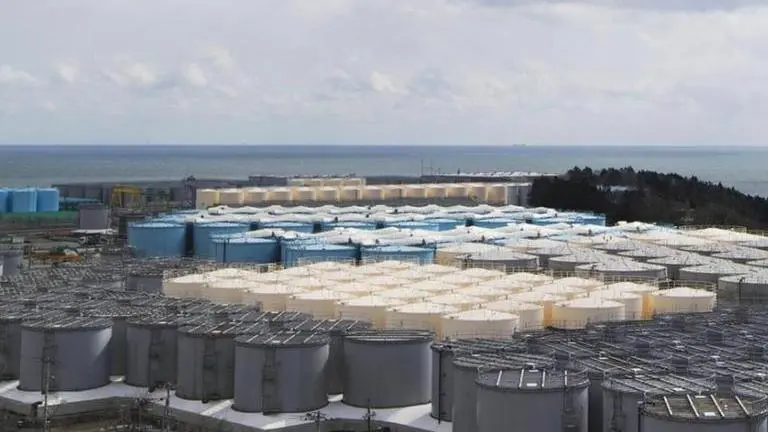Updated 23 July 2022 at 17:40 IST
Japan working on plan to discharge treated nuclear-contaminated water
Japanese nuclear plant's operator Tokyo Electric Power Company (TEPCO) will be subjected to further inspections and then the diluted water will be released.
- World News
- 2 min read

Japan's Nuclear Regulation Authority (NRA) on Friday, July 22 announced that the Tokyo Electric Power Company (TEPCO) has approved the discharge of the Fukushima plant's radioactive and contaminated water which was used to cool reactors in the aftermath of the 2011 nuclear disaster. An estimated 1.3 million tonnes of the nuclear material contaminated water has since been stored in tanks inside the plant and the regulators now believe that it is safe to release the water after the treatment to get rid of hazardous tritium. Fukushima Daichi nuclear power plant has incurred excessive damaged and was rendered inoperable in 2011 after the intense earthquake and a massive Tsunami.
Water in nuclear plant 'safe to discharge'
According to a statement on July 22, Japan's foreign ministry the regulators have now deemed that the water in the nuclear plant was safe to discharge. Although the plant operator Tokyo Electric Power Company (TEPCO) will be subjected to further inspections and then the diluted water will be released, freeing the space. It was earlier proposed that the Fukushima Daichi nuclear power plant water will be released into the Pacific Ocean.
The decision of the Japanese government, however, has attracted widespread backlash from local Japanese fisherman from that area who fear that the nuclear plant water might contaminate the water body and make fishes scant. Since more than 10 years now, the Japanese government has been exploring its options to get rid of the contaminated water, and had also proposed to building more storage tanks to house the water, or even evaporating it. But the Japanese government decided releasing the water as the best course of action with strict compliance to the regulatory standards of the oceanic releases.
Both neighbouring nations China and South Korea have expressed concerns about Japan's decision. "It's extremely irresponsible for Japan to discard other parties' concerns and attempt to make it an established fact. We firmly oppose it," Wang Wenbin, a spokesperson of China's foreign ministry said during press conference. "The disposal of Fukishima's nuclear wastewater concerns the global oceanic environment and the public health of countries around the Pacific Ocean," he continued. "It's absolutely not Japan's own business. China urges Japan to fulfill it due international obligations," he reminded.
Advertisement
Published By : Zaini Majeed
Published On: 23 July 2022 at 17:40 IST
